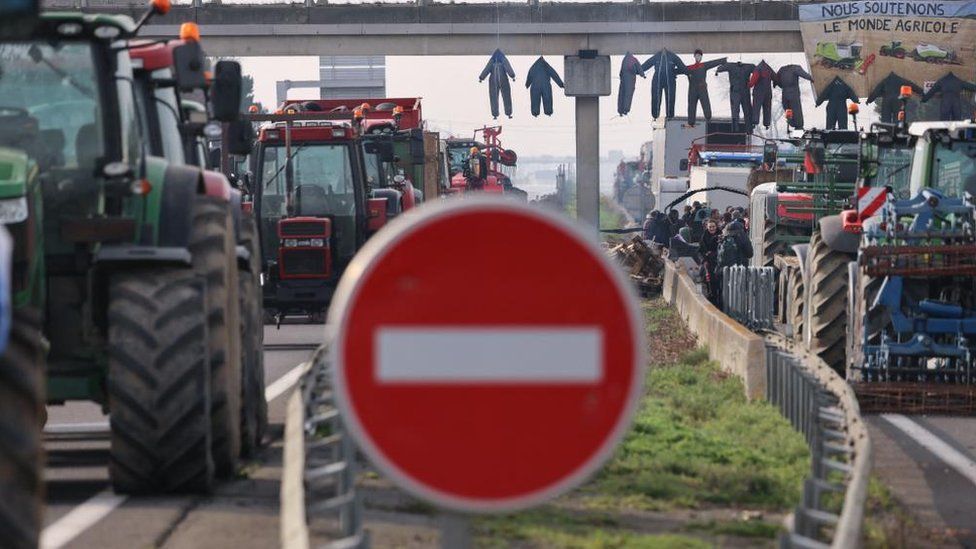-

-
-
Loading

Loading

Tens of thousands of farmers in Europe have taken to the streets to express their discontent with various issues. In France, farmers have blocked motorways, causing a crisis for the new Prime Minister. Their concerns range from national issues like bureaucracy and farm diesel costs to wider problems such as late EU subsidies and competition from imports. This protest movement is driven by a fight for survival as farmers struggle to cope with increasing challenges. In Germany, farmers are particularly angry about the phasing out of tax breaks on agricultural diesel. However, discontent across Europe is often rooted in frustration with EU policies, which have been viewed with suspicion by the agricultural sector. The EU's sustainability policies and the effects of the war in Ukraine have also contributed to the protests. The war disrupted trade routes in the Black Sea, leading to an influx of Ukrainian agricultural products into European markets, causing prices to drop and local farmers to suffer. Protests have also occurred in Eastern European countries, demanding a revision of EU trade measures with Ukraine. Farmers in countries like Poland, Slovakia, and Hungary have expressed concerns about cheap Ukrainian imports. Southern Europe has not yet seen the brunt of the protests, but Spanish and Italian farmers may soon join in due to the vulnerability posed by climate change. With European elections approaching, Eurosceptic parties have seized the opportunity to align themselves with the farmers' cause. However, some experts argue that farmers are not extremists and are actually the ones who understand the importance of Europe the most. The EU has started a "strategic dialogue" between agriculture groups and decision-makers, but many farmers feel forgotten or betrayed.